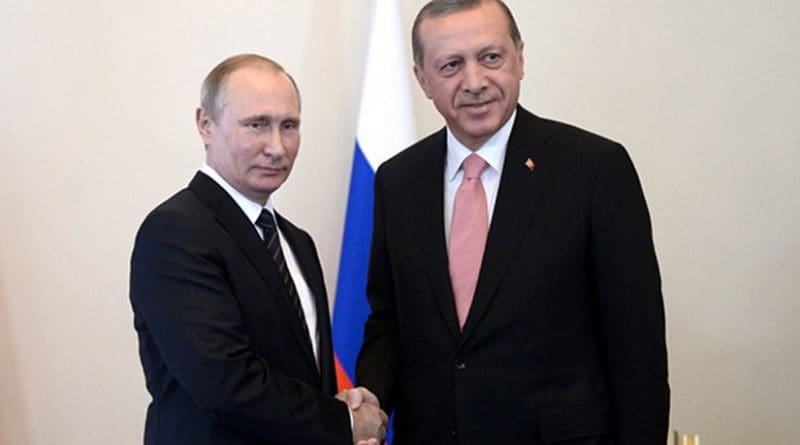Turkey Is Canary In Coal Mine: Forecasting Whether West-Led Liberal Order Has Future – Analysis
By Observer Research Foundation
By Abhijnan Rej
The assassination of the Russian ambassador to Turkey, Andrei Karlov, in Ankara on Monday caps an already-troublesome year for Turkey that saw an unsuccessful coup and a spate of high-intensity terrorist attacks. The geopolitical ramifications of Karlov’s assassination – and the degree to which Russia would seek concessions from Turkey as compensation – is not yet clear.
What is evident is that the ebb and flow of Turkey’s trajectory in the recent years closely parallel the three of the greatest risks to the post-war liberal international order. These risks are the growing fissure between Islamism and the West – in Europe and its periphery, the rise of authoritarian leaders within ostensibly democratic frameworks, and the visible fragility of American alliances and the security architectures that sustain them.
Modern Turkey, as envisioned by Mustafa Kemal Ataturk after the collapse of the Ottoman empire, was to be a staunchly secular state. The Turkish military saw to it that Ataturk’s conception of the state remained intact. Turkey would become a frontline Western state in the American anti-Soviet containment policy, as a member of Nato and other collective security mechanisms.
But Europe never fully opened up to Turkey as one of its own. Despite Bush Jr’s exhortations that Turkey be admitted to the European Union – and therefore serve as a model for other Muslim-majority states to emulate – European powers never warmed to this idea. This was a cause of resentment among many Turks.
With Recep Tayyip Erdogan at helm, Turkey’s flirtation with Islamism began to acquire an institutional character. Erdogan imagined Turkey’s role as a buffer state between Europe and West Asia as leverage to obtain significant concessions from the EU while, at the same time, playing the Sunni-Shia conflict for its own geopolitical advantage. This in turn, and much like Pakistan, exposed Turkey to Islamist violence on its own soil. Instead of consolidating its image as a secular republic, Turkey today embodies a schizophrenic relationship – between Turkey as a nominal ally of the West, and as a country with a significant Islamist base.
When pundits talk about the rise of illiberal democracies led by authoritarian leaders, Turkey is at the top of the list of examples. What started out as a fringe movement on the edge of Europe – in Hungary and Poland – now appears to be mainstream. First PM, and then president, Erdogan has cracked down on the press and aligns his policy priorities as a conservative Muslim. Much like other authoritarian leaders of our era, he also enjoys significant support from the Turkish people. The extent of this became clear during the failed coup this summer when people took to the streets to foil it.
Erdogan has also publicly challenged Turkey’s long-term commitment to Western-led alliances. A couple of months ago, he hinted at Turkey seeking membership in the Shanghai Cooperation Organization (SCO) – a Sino-Russian central Asian security framework. In fact, Turkey seems to have internalised, for the moment, that Russia as a temporary ally serves its long-term calculations better than America as a permanent friend.
This is why despite a serious conflagration last November – when Turkey shot down a Russian fighter jet – Erdogan has been more than keen to make nice with Putin. This is also why Turkey will, in all certainty, heavily crack down on groups that it suspects to be behind Ambassador Karlov’s assassination while publicly blaming US-based dissident Fethullah Gulen as the culprit. It goes without saying that given the diametrically opposite stances of Turkey and Russia over Syria, this is a tightrope act.
Though Erdogan seems to be using the possibility of a Russia-Turkey entente as a bargaining chip to strike a deal with the West – shades of another populist, Donald Trump, here – this has the potential to unnerve the US. To wit, this would be the first time, should Turkey indeed join the SCO, that a Nato member is also part of a pact that has Nato’s greatest worry, Vladimir Putin, as a leader. Should countries like Turkey exhibit wavering commitment to the US-led security architecture, this does not bode well for the future of the architecture itself.
The canary in the coal mine is Turkey. Its trajectory will serve as the best indicator of the future of the liberal world order in the years to come.

